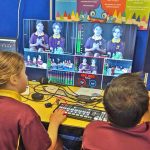As a seven-year-old, Barbara Walker had her appendix out – and asked her dad why her skin was darker than every other kid in the Wagga Wagga hospital. He told her that the family’s German ancestors were black.
A decade later, working as a student nurse in Sydney, every Indigenous patient she met would ask her who her mob was and where they came from.
“I asked Dad again, and he told me the truth – that his mum was a Wiradjuri lady, but our family been too scared to let anyone know,” Aunty Barb says.
“It was a time when authorities were still taking children, and they’d often take them for no reason at all. Dad couldn’t take the risk that he’d come home one day, and the six of us kids would be gone, taken away. People were just so afraid to have any connection to ‘native Australians’, people were just so racist so openly. Sadly, I know it’s still out there.”
That experience, and both the trauma and determination Aunty Barb witnessed in her Indigenous community, helped forge her passion for traditional Wiradjuri ‘waybarra’, or weaving. Now she’s hoping to weave Indigenous pride and resilience into a story that reaches around the world, with support from the Whanu Binal Indigenous Entrepreneur Program.
Today., Aunty Barb teaches weaving classes at local primary and secondary schools and offers workshops to children and adults across southern Queensland.
“You can’t learn our culture in isolation, it’s got to be part of community – and that encourages me to spread my knowledge to young Indigenous students, and to everyone,” she says.
She says she is sad to see cultural and craft knowledge once shared proudly by female elders within Indigenous families not passed on as much as it once was – something that creates a critical gap in the education of the younger generation.
“Weaving is something that was passed on through families – something that children learned from the older generation,” she told EducationDaily. “Teaching it in schools helps bring back some memories of those skills because the kids go home to their mothers or grandmothers or aunties, and those women remember when they saw women in their families weaving too.”
While she says complex weaving is something best suited to older school students, primary-aged children can pick up the skill that can create a strong foundation for future weaving expertise – with potential to craft a life of weaving-related opportunities.
Learning connection to Country
Since retiring from nursing in 2010, she has settled in the tiny Queensland town Pittsworth, on Giabal country, while building her creative practice.
“It’s instinctive, wanting to do something with my hands, ever since I was a little kid making daisy chains, twisting tree bark,” Aunty Barb says.
“Now I just get in the moment and feel that connection with my culture and my country – and what I make brings a lot of joy.”

Selling her beautiful naturally dyed creations, including traditional Tidda baskets, or sista baskets, Aunty Barb realised her work could also grow Australians’ understanding of First Nations’ culture.
“I’m one of the directors of our First Nations Arts and Culture Collective (in Toowoomba), and the chairperson recommended we do this Whanu Binal program – that it would help the collective, and also how I showcase my work,” she says.
“With Queensland hosting the Olympics in 2032, it’s an opportunity to put Queensland First Nations art and culture on the world stage. So, the Whanu Binal mentoring’s been great, it’s helping us think big and start that conversation.”
For the past five years, CQUniversity has partnered with Queensland-based natural gas company Arrow Energy to offer Whanu Binal, and empower more than 120 Indigenous entrepreneurs with support to grow their businesses, and access new clients and markets.
The program name is from the language of the Western Guugu Yalanji peoples of Far North Queensland: ‘Whanu’ is a strong tree with deep roots and ‘Binal’ the development of knowledge through a lifetime.
“Connecting with Elders, and with Aunties, that has been amazing for me – so now I’m keeping that going, with teaching kids how to weave, and to have pride in the language and stories around that.”








